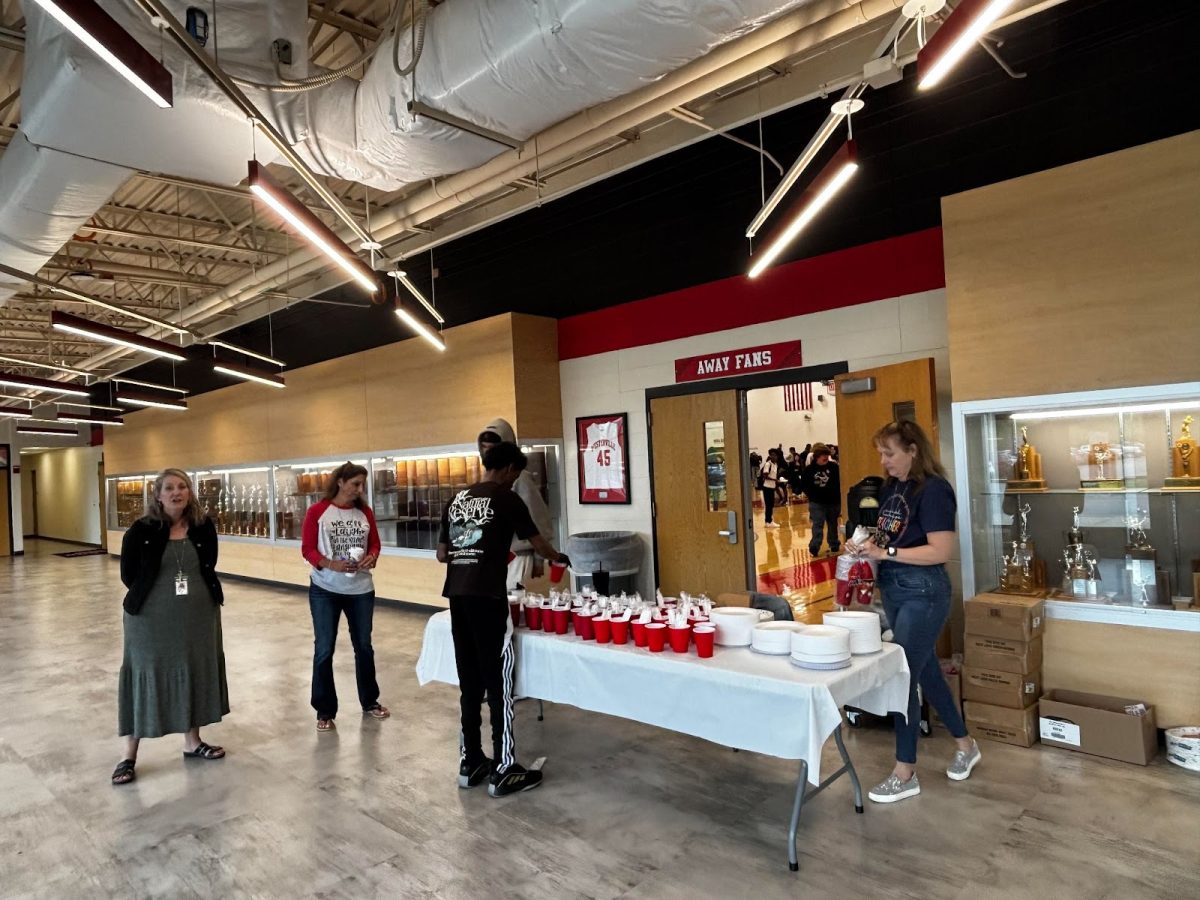The COVID-19 Pandemic Impacts Students, Some in More Ways Than Others
January 12, 2022
Students all over the U.S. were heavily impacted by online learning when they had to go into quarantine back in March 2020. Grades dropped, morale was at an all-time low, and students just could not adapt. Plenty of students had a hard time adjusting to virtual learning, and it really showed.
“The first thing to consider is that it’s going to be a variable effect. Children come from very different backgrounds and have very different resources, opportunities, and support outside of school. Some students will be fine during this crisis because they’ll have high-quality learning opportunities, whether it’s formal schooling or informal homeschooling of some kind coupled with various enrichment opportunities. Conversely, other students won’t have access to anything of quality, and as a result, will be at an enormous disadvantage.” – Paul Reville, former Secretary of Education for Massachusetts, now the Francis Keppel Professor of Practice of Educational Policy and Administration at Harvard Graduate School of Education.
Baolong Phan, a freshman this year, had to adjust a lot, with his last normal year in school being 3 years ago, in 6th grade. Phan stated that the pandemic slowed his education, as virtual learning was very slow and confusing at first, and he did not know what to do. He says his experience was hard, and some of his grades may have dropped by a point or two, but nothing too worrying.
“I did not feel at all connected with my friends. It was scary not being able to see these people on a daily basis anymore.”
He went on to say that if he could go back and do it again, he would put in the extra effort needed to keep his grades up, instead of worrying about being so lost in this new world we had to live in.
“I disliked it, but not by a lot. While it was stressful at times, I definitely gained some life skills from it.” Phan said when asked how he felt about the introduction of ‘Cohorts’ in our learning. Math is where Phan really struggled, as he could not just ask a question, and get a quick, understandable answer.
The news in math, however, is more worrying. The math achievement of students in 2020 was about 5 to 10 percentile points lower compared to same-grade students the prior year. For most people, math isn’t an easy topic to master, and only so few of us are the exception to that.
Jameson Cho, a sophomore at South, was also affected by the pandemic in a couple of ways. Cho said that he was not impacted much, but the pandemic deprived him of his education freshman year, and he is now seeing the consequences of that this year. Cho said his grades remained the same, but that he prefers to be in person. Cho also said he felt more connected with his friends in person compared to being virtual. He was able to see everyone on a daily basis, but even then he did not feel disconnected, as he got to see some of his friends through sports when they met for practice.
“Looking back, I probably would have spread out of work when online- instead of forcing it all into one day and having a week off. I had more free time, but also a lot of stress, so I would want to change that. Spanish was definitely affected for the worst when we were virtual. I did not have the interaction that is needed when learning a language, and the teacher didn’t know how to teach Spanish without that interaction,” Cho said about his grades and most affected class.
“I really disliked the cohorts. The constant switching threw off my routine, and I found it hard to get into a rhythm. I also found it difficult to do assignments and ask questions when switching since resources are either less or more available when that cohort switch happens,” Cho said.
Laney Walden, a junior, was affected big time by the pandemic. Going through virtual learning made Walden realize that it is more important to take classes you actually enjoy, rather than just the harder, more challenging ones, because it is more important to take classes that you will have fun taking, rather than more challenging ones like AP or IB classes.
“My grades more or less remained the same, but my understanding of material got a lot worse. I participated in class, so I was at least able to get good grades, but I definitely struggled in science and math. I did a lot worse in math, but thankfully I was able to get it back up by the end of the year,” Walden said when asked how her grades were affected.
Walden said she did not feel connected at all with her friends. She said she missed getting to see her friends on a daily basis and wished to return to that.
She was happy with her grades, though most people probably were not. Math dropped by the most for her, and she disliked cohorts.
“In retrospect, I hated cohorts but it was probably better than being fully online. It just really depended on the class, I hope we never have to go back to that,” Walden said.
Ethan Stofel, a senior at South, surprisingly was not that affected by the pandemic. Stofel said that virtual learning made it easier to complete his work, but a lot harder to learn in the long run. Stofel said that his grades stayed consistent for the most part and that while his math grade started off worse, it was only because of the new math course he was learning, and it was confusing and frustrating not being able to ask for help. Stofel said he still felt connected because of cross country practices, and he could still text or FaceTime his friends if he wanted.
“I would have spent more time actually studying the material instead of just completing the assignments I was given and then playing Xbox when I was done,” Stofel said when asked how he would change what he did to help his grades improve.
Math seemed to be where he would struggle the most, as it was very difficult to start learning calculus at home by himself.
“It felt really separated and it wasn’t like a week in school, a week out. It was like a week on, a week off. I disliked it because I only saw some of my friends, and I disliked the uncertainty of what would happen next,” Stofel said when asked how he felt about cohorts.
Overall, students at Westerville South, and many, many other schools struggled to do well and learn when going into lockdown and had to resort to virtual learning. While some students were able to find their footing and have a good school year mostly virtual, the majority of students just couldn’t figure it out and would give up. Here’s to hoping nothing like going into lockdown happens again.




